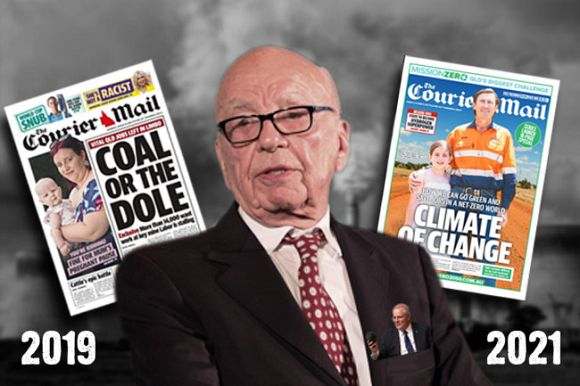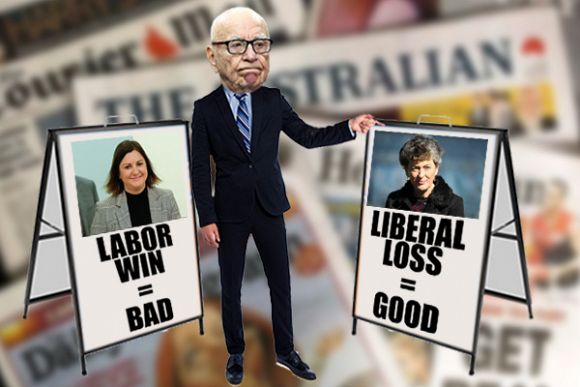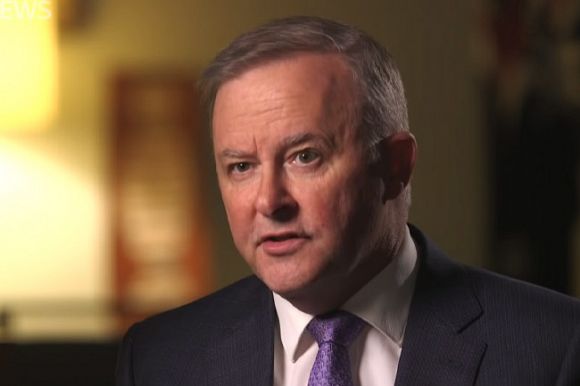Journalists have the power to frame reality for audiences, because they set the standards for what is considered "good", "bad", "normal" or "controversial".
News producers tend to downplay this power and instead put the power in the hands of their sources who they say are responsible for persuading the audience of the legitimacy of their ideas.
However, since journalists, producers and editors are ultimately responsible for what goes to print or what is broadcast, they have the power to frame their sources; to delegitimise or legitimise what their sources say. That power deserves scrutiny.
A perfect example of this power was Leigh Sales’ recent interview with Treasurer Josh Frydenberg.
Sales set the frame for the interview with this question:
“Is your 29 March Budget next year going to be about starting to recover the nation's balance sheet and pay down debt or are you going to be unable to resist taking the nation even further into debt because you'll want to splash cash around because you are heading into an election?”
There is nothing neutral about this question. There is nothing objective about it.
It presents, without question, the ideologically-loaded idea that government debt is bad for the economy and that government spending is politically problematic, rather than desirable.
It doesn’t matter what Frydenberg responded because the question itself presents a biased view of the world. It presents a neoliberal assumption and thus is not balanced, but instead privileges conservative, free-market ideology ahead of competing perspectives.
For example, it elides over the opposing perspective of Keynesian economic theory, which argues that government spending is good for the economy because it stimulates growth.
I wasn’t the only one who noticed Leigh Sales’ biased question. Professor Richard Holden – a professor of economics – pointed out that Leigh Sales was clearly taking a neoliberal stance on debt, a bias which rather than being "lefty", is perhaps reminiscent of right-wing views on Sky After Dark.
This valid assessment of Sales’ bias received a typical response from freelance journalist Ky Chow, typical in the way that it refuses to acknowledge that the practice of journalism should be critiqued and tells the audience if they just understood journalism better, they wouldn’t think it was biased.
Ky defends Sales’ question as ‘contrary', while also suggesting it is a ‘leading question’. He argues that such questions do not reflect the views of the interviewer, but are designed to elicit a sharper answer. This response gives away much about journalists’ lack of acknowledgment of their own power and how they respond when critiqued.
The question was not "contrary". A contrary question would be one that disagreed with Josh Frydenberg in order to challenge his views. This question did not challenge Frydenberg because it aligns with his neoliberal perspective that debt is bad for the economy.
It advantaged Frydenberg’s political position – as all right-wing media bias does – rather than challenge it. It presents a neoliberal standard which the Liberal Party would very much like to see maintained.
This question was also not a "leading" question, as Chow described it. A leading question is used to procure an answer that the interviewee wants. Instead, I would describe this question as framing what is desirable by priming the audience to take the neoliberal view that assumes debt is bad. It naturally follows that Frydenberg is behaving properly as Treasurer if he pays down debt, and improperly if he accumulates it.
The question set a standard for the respondent in the same way that when I ask my husband if he has put the bins out, I am asking because I want him to put the bins out, not because I’m leading him to say "yes I have".
The question is more powerful than the answer.
I also take issue with Chow’s argument that the question does not say anything about the views of the interviewer. It is time that we stopped pretending that journalists are "objective" just because they say they are. The notion that journalists are inherently "objective" gives them great power to define reality, to normalise their biased representations of the world and to decide for the audience what constitutes "truth".
Where Frydenberg clearly has a "view of the world" – as it is assumed any politician does – Sales can supposedly present herself as ideologically neutral through the professional journalistic value of "objectivity" and if anyone says she’s not being objective, we are told we just don’t understand journalism.
Indeed, I actually don’t care what Leigh Sales’ views are personally, nor how she votes in elections. What I do care about, however, is that the question she asked Frydenberg is ideologically framed. Whether she wrote the question, whether her producer did, it doesn’t matter.
At the end of the day, the audience were served up a biased representation of reality.
Bias is subtle because it lives in assumptions. The assumption that debt is bad and government spending is a problem is a neoliberal ideological assumption that permeates political and economic coverage of politics in Australia. It is not just Leigh Sales. It is not just ABC’s 7.30.
It is almost every journalist at almost every outlet who refuses to acknowledge that their news reporting is ideologically biased by the assumptions they make about what is desirable, what is problematic and what standards political leaders should be judged by.
The idea that debt is bad and government spending should be minimised has huge ramifications for how Australians judge political policies and parties. Journalists are meant to present balanced, diverse perspectives of issues and events by fairly representing different ideas and interests to allow the audience to judge for themselves what is true.
If Leigh Sales wants to bring some neutrality to her interviewing and to ‘elicit a sharper answer’ as Chow suggested, she could have framed the question in the interests of the public by asking Frydenberg this question:
“Can you please explain for the audience how you plan to manage the economy to ensure there is enough demand to stimulate economic growth and to make sure there is a job available for everyone who wants one?”
I would have been very interested to hear the Treasurer’s response.
Dr Victoria Fielding is an Independent Australia columnist. You can follow Victoria on Twitter @Vic_Rollison.
 This work is licensed under a Creative Commons Attribution-NonCommercial-NoDerivs 3.0 Australia License
This work is licensed under a Creative Commons Attribution-NonCommercial-NoDerivs 3.0 Australia License
Support independent journalism Subscribe to IA.















